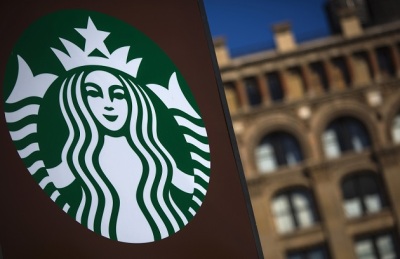Does free Starbucks coffee do more harm than good at church?

DURHAM, N.C. (Christian Examiner) -- Efforts like offering name-brand refreshments prior to or following Sunday morning worship and gift certificates to chain restaurants to first-time visitors may backfire on a church's main goal of solidifying commitment to religious beliefs.
Gavan Fitzsimons, R. David Thomas Professor of Marketing and Psychology at Duke University's Fuqua School of Business said offering incentives such as Starbucks coffee or Krispy Kreme doughnuts could have a greater influence on people than churches may expect, but that such products may engender less support for church, not more.
Fitzsimons recently co-authored "Finding Brands and Losing Your Religion," in the December 2014 issue of Journal of Experimental Psychology: General. Fitzsimons and his colleagues detailed six studies they conducted and the results which indicate a correlation between the use of brands as a prominent means of self-expression and a lower demonstration of religious commitment.
It's not hard to imagine that people don't want to believe it, that this is a real effect. But if you can get people aware that it's there, I think it might get people to rethink the role of their religious institution versus their brands in their lives.
Fitzsimons, whose research focus is unconscious influences on consumer behavior, summarized his recent work in a Fuqua School of Business news release. He and his co-authors tested the hypothesis that mere exposure to brand products would undermine and weaken individuals' commitment to God and religion.
-- One study of 131 participants who were asked to choose between branded products and the same products with the brand removed showed that participants exposed to branded products self-identified as less religious when answering questions about religious commitment.
-- Another study of 41 participants showed that people who chose brand products for self-expression rather than functional value reported a lower commitment to religion. In a third study involving 260 adults who were given T-shirts they could keep or donate, people who received brand T-shirts considered religious expression to be less important than those who received unbranded shirts.
Fitzsimons concluded from these and similar research that brand products may be filling needs once met primarily by religion—a sense of community, self-expression, and belonging—and as such should serve as a caution regarding the mixture of brands and religion.
In 2013, Fitzsimons reflected on the implications of his research in Faith & Leadership. He noted that previous research demonstrated a correlation between religious commitment and dependence on brand name products. "As religiosity goes up, brand reliance goes down," he said. By itself, he said, those findings were interesting facts, but when coupled with studies indicating that brand products fulfill social and psychological needs which may reduce the tendency of people to meet those needs through religion, he suggested it could be terrifying to religious leaders.
Fitzsimons believed that religious leaders could use his research findings to alert people to the reality of self-identification with brand products over religion, to evaluate the wisdom of organized religious groups embracing brands, and to help determine the degree to which church programming should be consumer-oriented. "It's not hard to imagine that people don't want to believe it, that this is a real effect. But if you can get people aware that it's there, I think it might get people to rethink the role of their religious institution versus their brands in their lives" he told Faith & Leadership.
Fitzsimons and his fellow researchers represent diverse ethnic and religious background including Irish Catholic, African-American Baptist, Israeli Jew, and Turkish Muslim.